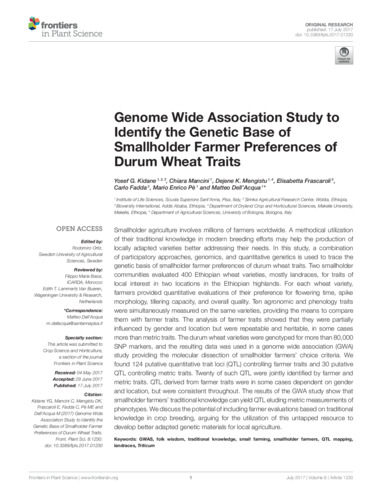Genome wide association study to identify the genetic base of smallholder farmer preferences of Durum wheat traits
Smallholder agriculture involves millions of farmers worldwide. A methodical utilization of their traditional knowledge in modern breeding efforts may help the production of locally adapted varieties better addressing their needs.
In this study, a combination of participatory approaches, genomics, and quantitative genetics is used to trace the genetic basis of smallholder farmer preferences of durum wheat traits. Two smallholder communities evaluated 400 Ethiopian wheat varieties, mostly landraces, for traits of local interest in two locations in the Ethiopian highlands. For each wheat variety, farmers provided quantitative evaluations of their preference for flowering time, spike morphology, tillering capacity, and overall quality. Ten agronomic and phenology traits were simultaneously measured on the same varieties, providing the means to compare them with farmer traits. The analysis of farmer traits showed that they were partially influenced by gender and location but were repeatable and heritable, in some cases more than metric traits. The durum wheat varieties were genotyped for more than 80,000 SNP markers, and the resulting data was used in a genome wide association (GWA) study providing the molecular dissection of smallholder farmers' choice criteria.

